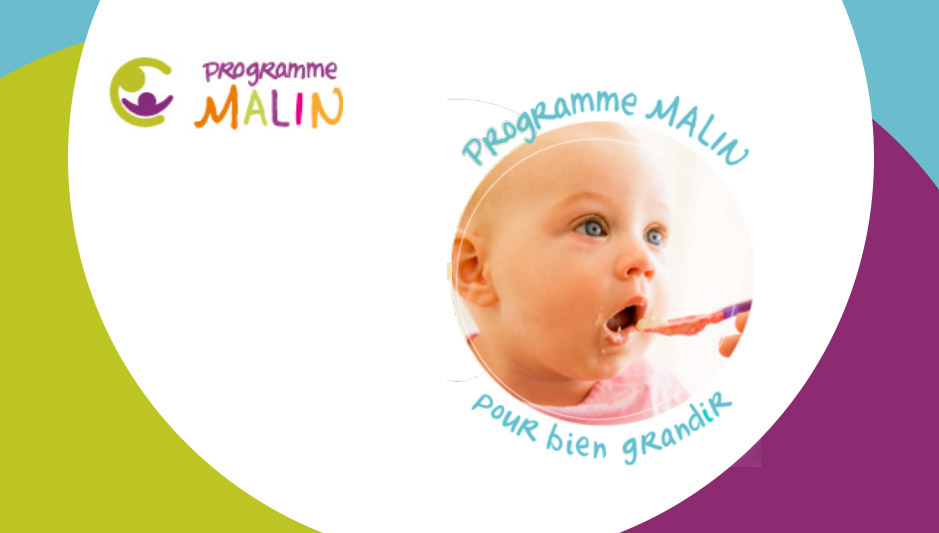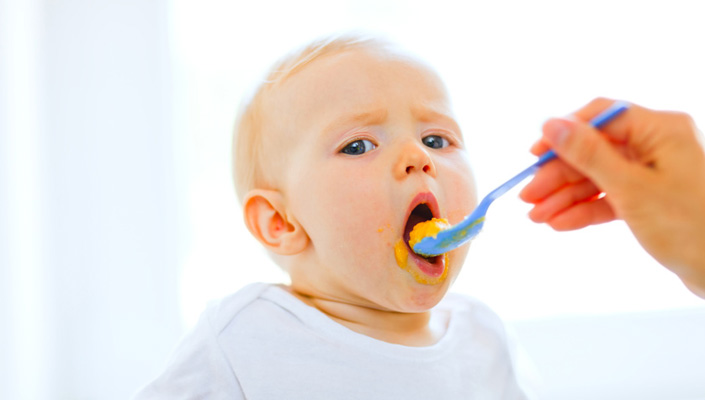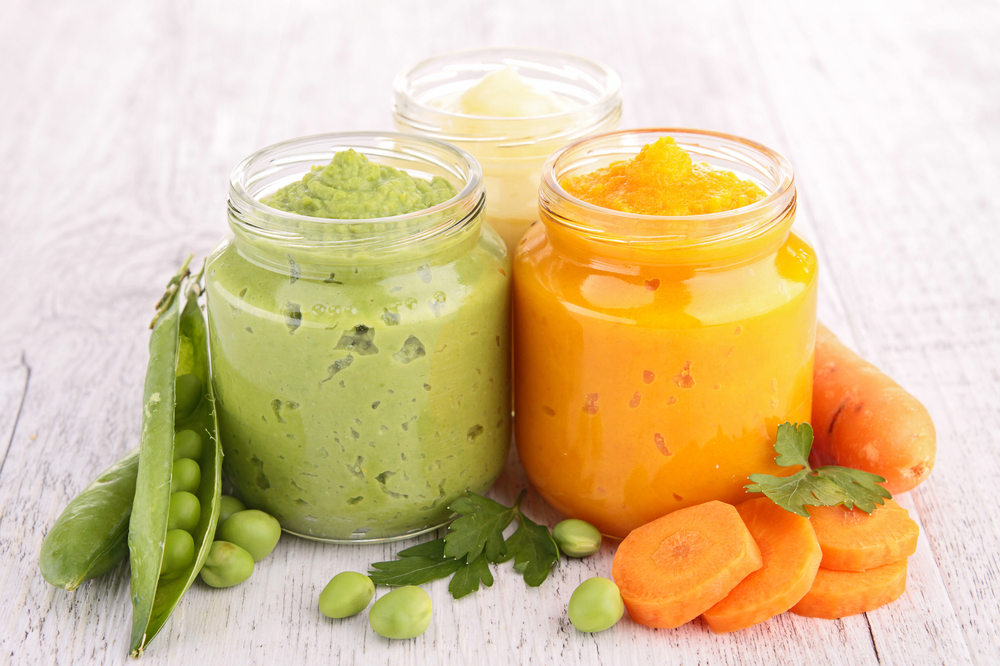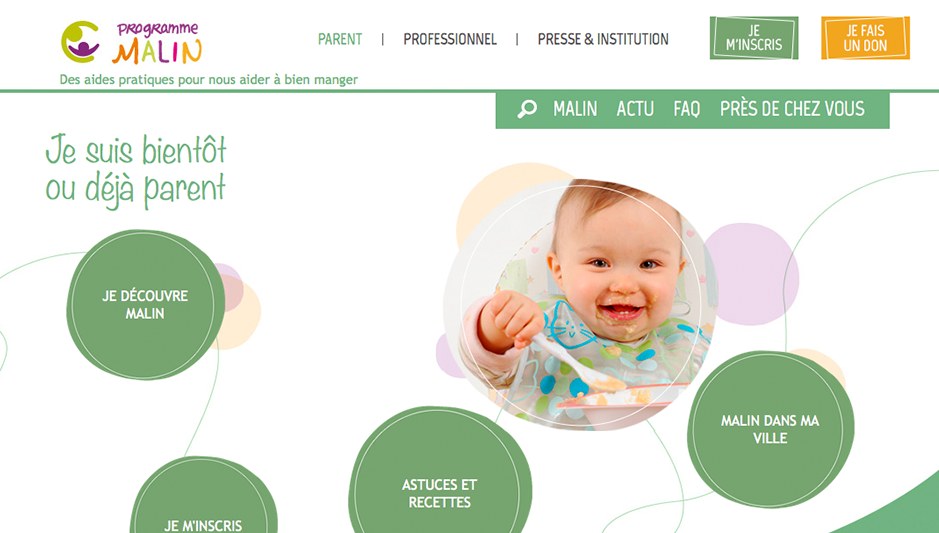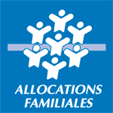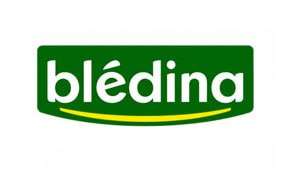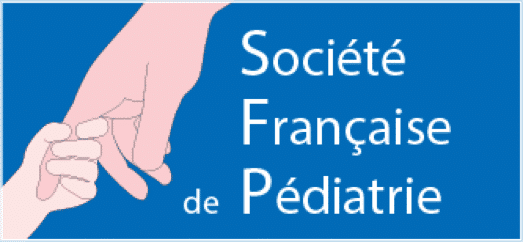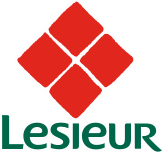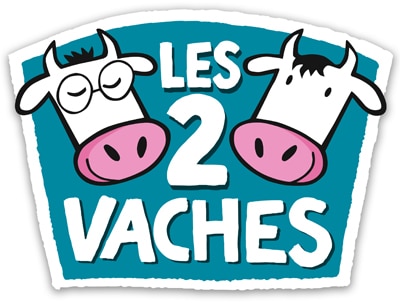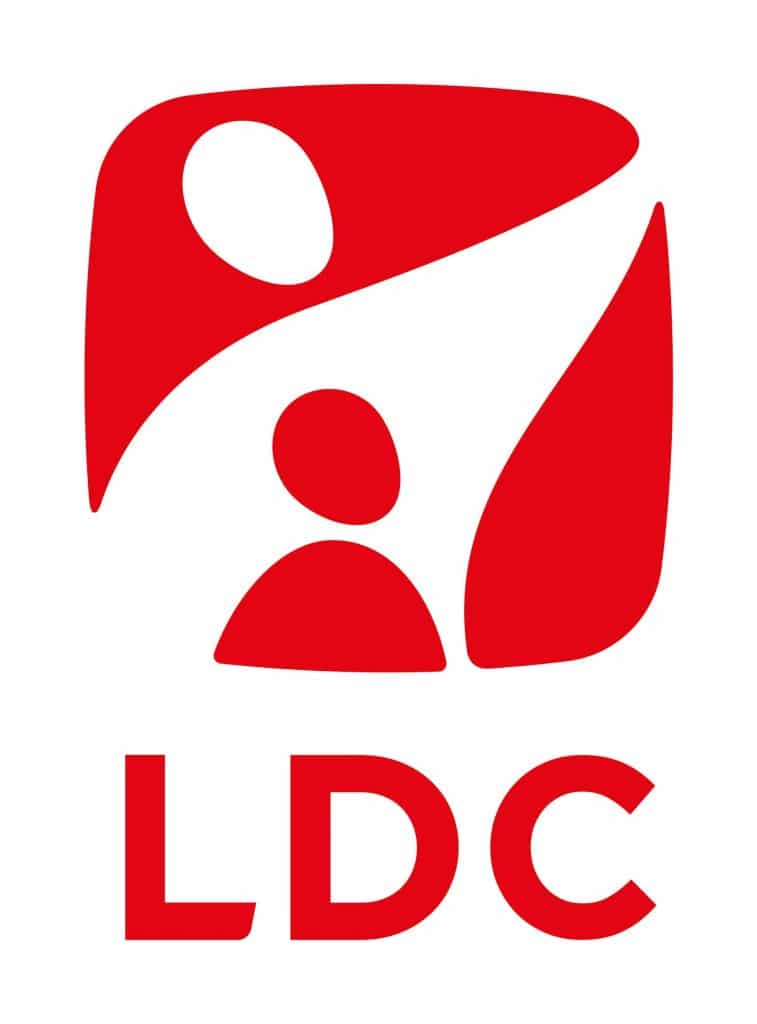
In short
The Challenge
According to a 2015 Unicef report, every year in France, 160,000 children (ie. one out of five) are born poor. Such a statement raises two issues :
- Child nutrition products have a significant cost for low-income families
- The nutrition-related advice these families may (or may not) receive is not always adapted to their situation
Our offer
After two years of discussions, we launched the Programme Malin in 2011. The programme provides low-income parents with affordable and nutritious food and nutritional advice for their 6 months to 3-year-old children.
Our partners
Read more
Recent reports have shown the importance of a healthy diet in the early stages of a child’s development – ie. the first 1,000 days – and the impact of socioeconomic conditions on a child’s eating habits (impact of breastfeeding, eating vegetables ; meal rhythm). The results point out that the diet of young children from vulnerable social or economic backgrounds is a real challenge.
Every year in France, 160,000 children are born poor – ie. one child out of five – according to a UNICEF report [1] . For their families, child nutrition products are expensive and the existing food aid solutions do not always match their needs. Furthermore, the advice they may (or may not) receive is rarely adapted to their material, economic or even emotional situation. These difficulties lead to practices which jeopardize children’s health. These bad practices include unheathy diets of pregnant women, lower breastfeeding rates, food that is given to children too early (cow’s milk for example), diversification stages that are not closely followed.
The Programme Malin’s design is the result of discussions between Martin Hirsch (Chief Executive of the Greater Paris University Hospitals), Emmanuel Faber (CEO of Danone), and a wide range of stakeholders. It is the Action Tank’s very first programme.
[1] UNICEF France 2015 – “Chaque enfant compte. Partout, tout le temps.”
The programme targets pregnant women and children under 3 whose families are undergoing short term or long term economic and/or social difficulties. It also targets families who are above the poverty line but still undergo difficulties because of threshold effects.
We have developed two complementary solutions to address the issue :
- A toolbox was designed to provide nutritional advice. We came up with five thematic paper guides which each deal with key aspects of child nutrition ; a leaflet listing the key organizations parents could turn to ; a website with practical advice, recipes and financial tips ; a monthly newsletter with recipes, tips and information about local initiatives.
- Partnerships with companies in order to give access to affordable products (baby food and cooking appliances)
After its inception, the Programme Malin became an independent not-for-profit. It mobilizes a wide range of partners :
- A group of pediatric experts who helped set up the programme and provided support for the definition of the nutrition toolbox
- Bledina, Seb and Sodexo who contribute to funding the programme
- Local organizations who identify the targeted families
- Local family allowance funds who refer families directly to the programme’s website
The programme started with four different pilots : Grenoble, Villefranche-sur-Saône, Loire-Atlantique, and Savoie. In 2015, the programme expanded to the North-East of Paris.
Parallel to this, the website enables to reach families across the country. They can suscribe to our offer by uploading documents to prove their eligiblity.
A national roll-out was decided in December 2017. 15 priority regions are targeted and should be included in the programme by 2022. These regions concentrate more than 50% of children living in low-income families.
Please contact Nicolas Douziech for more information.

